-
 bitcoin
bitcoin $87959.907984 USD
1.34% -
 ethereum
ethereum $2920.497338 USD
3.04% -
 tether
tether $0.999775 USD
0.00% -
 xrp
xrp $2.237324 USD
8.12% -
 bnb
bnb $860.243768 USD
0.90% -
 solana
solana $138.089498 USD
5.43% -
 usd-coin
usd-coin $0.999807 USD
0.01% -
 tron
tron $0.272801 USD
-1.53% -
 dogecoin
dogecoin $0.150904 USD
2.96% -
 cardano
cardano $0.421635 USD
1.97% -
 hyperliquid
hyperliquid $32.152445 USD
2.23% -
 bitcoin-cash
bitcoin-cash $533.301069 USD
-1.94% -
 chainlink
chainlink $12.953417 USD
2.68% -
 unus-sed-leo
unus-sed-leo $9.535951 USD
0.73% -
 zcash
zcash $521.483386 USD
-2.87%
Can I trade Bybit futures in the UK?
UK residents can trade Bybit futures only if approved as professional clients by completing an FCA-mandated assessment and meeting net worth or trading frequency criteria.
Jul 27, 2025 at 05:56 am
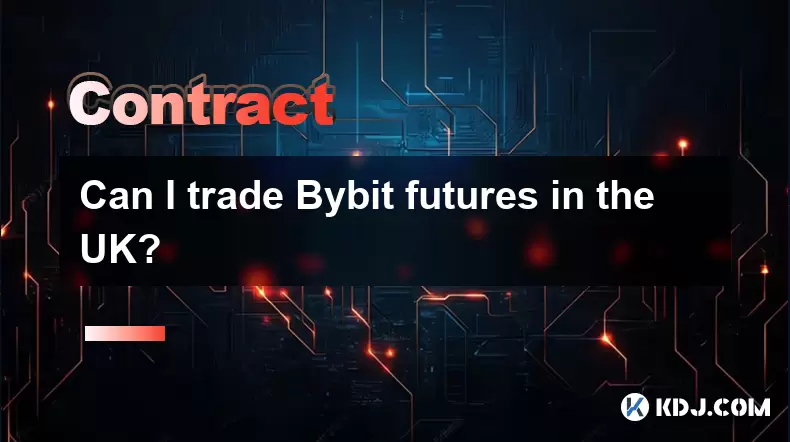
Understanding Bybit’s Availability for UK Traders
Yes, UK residents can trade Bybit futures, but with important caveats. As of recent regulatory updates, Bybit has adjusted its services to comply with UK financial rules. The Financial Conduct Authority (FCA) in the UK has imposed restrictions on crypto derivatives for retail investors due to concerns over market volatility and investor protection. This means retail traders in the UK cannot access leveraged futures contracts on Bybit or similar platforms unless they qualify as professional clients.
However, if you are a professional trader—meaning you meet specific FCA criteria such as trading frequency, portfolio size, and experience—you may still be able to access futures trading. To apply for professional status, you must complete a suitability test on Bybit’s platform. This process verifies your understanding of derivatives and your ability to bear financial risk.
How to Verify Your Professional Status on Bybit
To gain access to futures trading as a UK-based user, follow these steps:
- Navigate to your Bybit account settings and locate the “Professional Client” section.
- Complete the FCA-mandated questionnaire, which assesses your trading experience, knowledge of derivatives, and net worth.
- Submit proof of trading history—typically three months of trading statements from any regulated exchange showing regular activity.
- Provide documentation proving your net assets exceed £500,000 or that you have executed at least 10 significant trades per quarter over the past four quarters.
- Wait for Bybit’s compliance team to review your application, which usually takes 2–5 business days.
Once approved, you’ll see futures trading enabled in your account dashboard. If rejected, you’ll remain restricted to spot trading only.
Available Futures Products for UK Professional Traders
If you’re approved as a professional client, you can trade several types of futures on Bybit:
- USDT-margined perpetual contracts – These are the most popular and include BTC/USDT, ETH/USDT, and other major altcoins. Leverage ranges from 1x to 100x, but Bybit enforces risk limits based on position size.
- Inverse perpetual contracts – Denominated in BTC or ETH instead of USDT. These are less common but useful for hedging native crypto positions.
- Delivery futures – Time-bound contracts that settle on specific dates. These are less liquid than perpetuals but offer precise expiration control.
Each contract type has distinct margin requirements and liquidation mechanisms. For example, USDT-margined contracts use linear liquidation, meaning losses are capped in stablecoin terms, while inverse contracts can lead to higher volatility in your base crypto asset.
How to Place a Futures Trade on Bybit (Step-by-Step)
Once futures are enabled, placing a trade involves:
- Log into your Bybit account and click “Derivatives” > “USDT Perpetual” (or your preferred contract type).
- Select the cryptocurrency pair (e.g., BTC/USDT) and choose between “Cross” or “Isolated” margin mode. Cross uses your entire USDT balance as collateral; Isolated limits risk to a specific position.
- Set your leverage level using the slider—remember, higher leverage increases both profit potential and liquidation risk.
- Enter your order type: “Limit” (set your own price) or “Market” (execute immediately at current price).
- Input the quantity in USDT or contracts, then click “Buy Long” or “Sell Short.”
- Confirm the order summary, including estimated liquidation price and margin requirements, before submitting.
Always double-check your settings—a wrong leverage choice can result in rapid liquidation during high volatility.
Tax and Reporting Obligations for UK Futures Traders
Trading futures in the UK triggers tax implications under HMRC rules. Profits from crypto derivatives are treated as capital gains or income depending on your trading frequency and intent:
- If you’re a professional trader, profits may be classified as income, subject to Income Tax and National Insurance.
- If you’re an occasional trader, gains are likely Capital Gains Tax (CGT)-liable, with an annual exemption of £3,000 (as of 2024).
- You must report all futures trades—even losses—in your Self Assessment tax return.
- Keep detailed records: trade dates, amounts, prices, fees, and wallet addresses. Bybit provides downloadable trade history under “Account” > “Transaction History.”
HMRC may request these records during audits, so maintaining accuracy is critical.
Frequently Asked Questions
Can I use a UK bank account to fund my Bybit futures trading?Yes, UK bank transfers (via Faster Payments) are supported for depositing and withdrawing USDT. However, only approved professional traders can use these funds for futures. Retail users will see a warning if they attempt to open a leveraged position.
What happens if I try to trade futures without professional status?Bybit will block the trade and display an error: “Futures trading is restricted for UK retail users.” You’ll need to either apply for professional status or switch to spot trading.
Are there any hidden fees for UK futures traders?No hidden fees exist, but standard Bybit fees apply: taker fees (0.06%) and maker fees (0.01%) for USDT-margined contracts. These are visible before order confirmation.
Can I revert from professional to retail status later?Yes, you can downgrade your status in Bybit’s settings. Once done, futures trading will be disabled again, and you’ll revert to spot-only access. This action is irreversible for 12 months unless you requalify.
Disclaimer:info@kdj.com
The information provided is not trading advice. kdj.com does not assume any responsibility for any investments made based on the information provided in this article. Cryptocurrencies are highly volatile and it is highly recommended that you invest with caution after thorough research!
If you believe that the content used on this website infringes your copyright, please contact us immediately (info@kdj.com) and we will delete it promptly.
- Exaverse Roars into the Roguelike Scene: A Dinosaur Adventure Awaits!
- 2026-02-05 00:30:01
- Big Apple Bites: AI Forecasts Staggering Ethereum Price Record as Market Navigates Volatile Waters
- 2026-02-05 01:10:02
- Unlock Your Edge: The Ultimate Guide to MEXC Referral Code, USDT Bonus, and Fee Discounts
- 2026-02-05 01:00:02
- Navigating the New York Minute: Crypto Exchange Fees in 2026, Globally Unpacked
- 2026-02-05 01:05:02
- Bitcoin's Technical Analyst Warns of Potential Price Drop Amid Market Jitters
- 2026-02-05 01:00:02
- Big Apple Crunch: Bitcoin Mining Faces Profit Crisis as Block Time Spikes and the Difficulty Dial Gets a Hard Reset
- 2026-02-05 00:50:02
Related knowledge

How to Manage Emotions and "Revenge Trading" in Futures?
Feb 05,2026 at 12:19am
Understanding Emotional Triggers in Futures Markets1. Market volatility directly impacts psychological states, often amplifying fear or euphoria based...
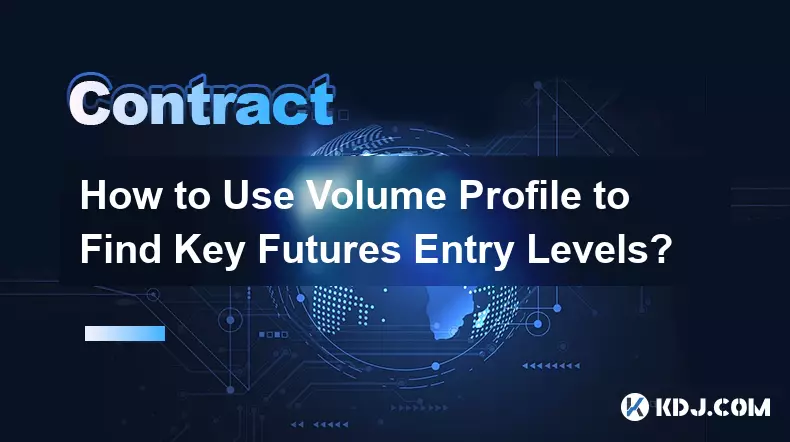
How to Use Volume Profile to Find Key Futures Entry Levels?
Feb 04,2026 at 11:39pm
Understanding Volume Profile Structure1. Volume Profile displays the distribution of traded volume at specific price levels over a defined time period...
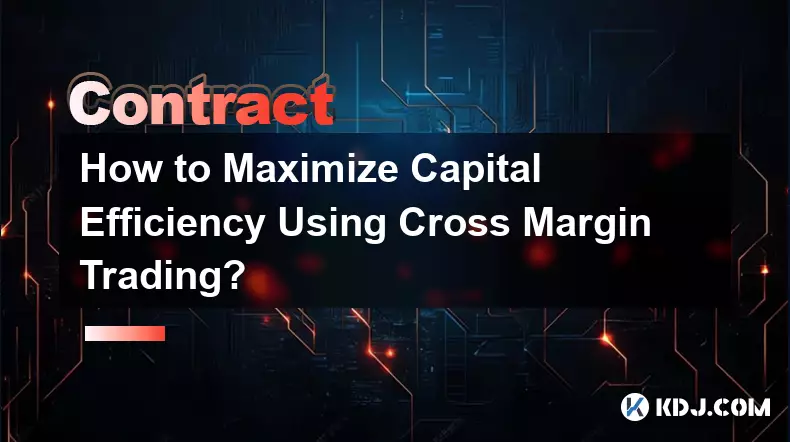
How to Maximize Capital Efficiency Using Cross Margin Trading?
Feb 05,2026 at 12:40am
Cross Margin Trading Fundamentals1. Cross margin trading allows traders to use their entire account balance as collateral for open positions across mu...
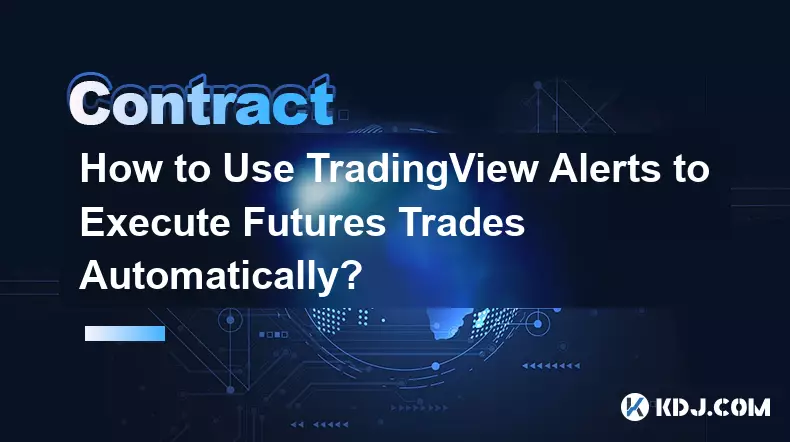
How to Use TradingView Alerts to Execute Futures Trades Automatically?
Feb 04,2026 at 09:00pm
Setting Up TradingView Alerts for Futures Contracts1. Log into your TradingView account and open the chart of the desired futures instrument—such as B...
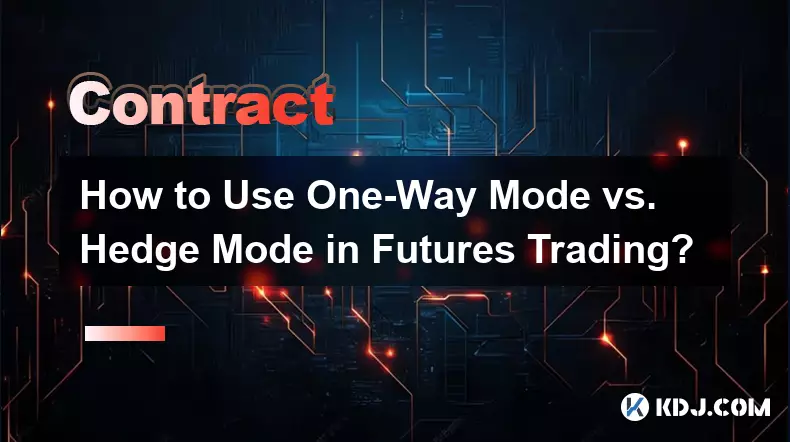
How to Use One-Way Mode vs. Hedge Mode in Futures Trading?
Feb 04,2026 at 06:19pm
Understanding One-Way Mode1. One-way mode establishes a single position direction per asset—either long or short—at any given time. 2. Traders cannot ...
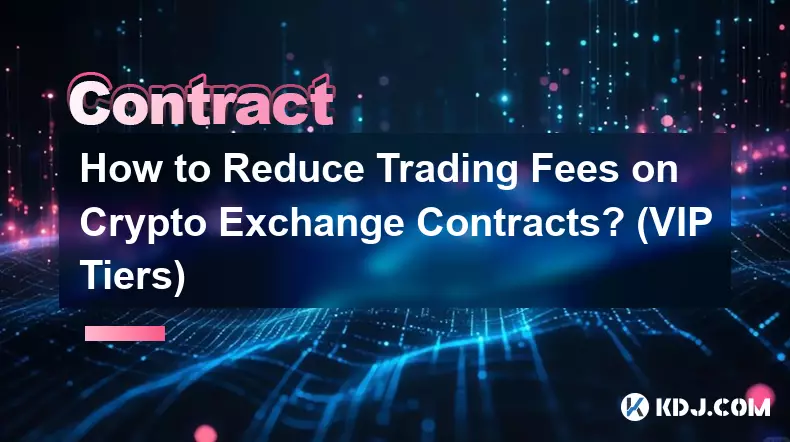
How to Reduce Trading Fees on Crypto Exchange Contracts? (VIP Tiers)
Feb 04,2026 at 10:20pm
VIP Tier Structure and Eligibility Criteria1. Each major crypto exchange implements a tiered VIP system where users qualify based on their 30-day cumu...

How to Manage Emotions and "Revenge Trading" in Futures?
Feb 05,2026 at 12:19am
Understanding Emotional Triggers in Futures Markets1. Market volatility directly impacts psychological states, often amplifying fear or euphoria based...

How to Use Volume Profile to Find Key Futures Entry Levels?
Feb 04,2026 at 11:39pm
Understanding Volume Profile Structure1. Volume Profile displays the distribution of traded volume at specific price levels over a defined time period...

How to Maximize Capital Efficiency Using Cross Margin Trading?
Feb 05,2026 at 12:40am
Cross Margin Trading Fundamentals1. Cross margin trading allows traders to use their entire account balance as collateral for open positions across mu...

How to Use TradingView Alerts to Execute Futures Trades Automatically?
Feb 04,2026 at 09:00pm
Setting Up TradingView Alerts for Futures Contracts1. Log into your TradingView account and open the chart of the desired futures instrument—such as B...

How to Use One-Way Mode vs. Hedge Mode in Futures Trading?
Feb 04,2026 at 06:19pm
Understanding One-Way Mode1. One-way mode establishes a single position direction per asset—either long or short—at any given time. 2. Traders cannot ...

How to Reduce Trading Fees on Crypto Exchange Contracts? (VIP Tiers)
Feb 04,2026 at 10:20pm
VIP Tier Structure and Eligibility Criteria1. Each major crypto exchange implements a tiered VIP system where users qualify based on their 30-day cumu...
See all articles










































































